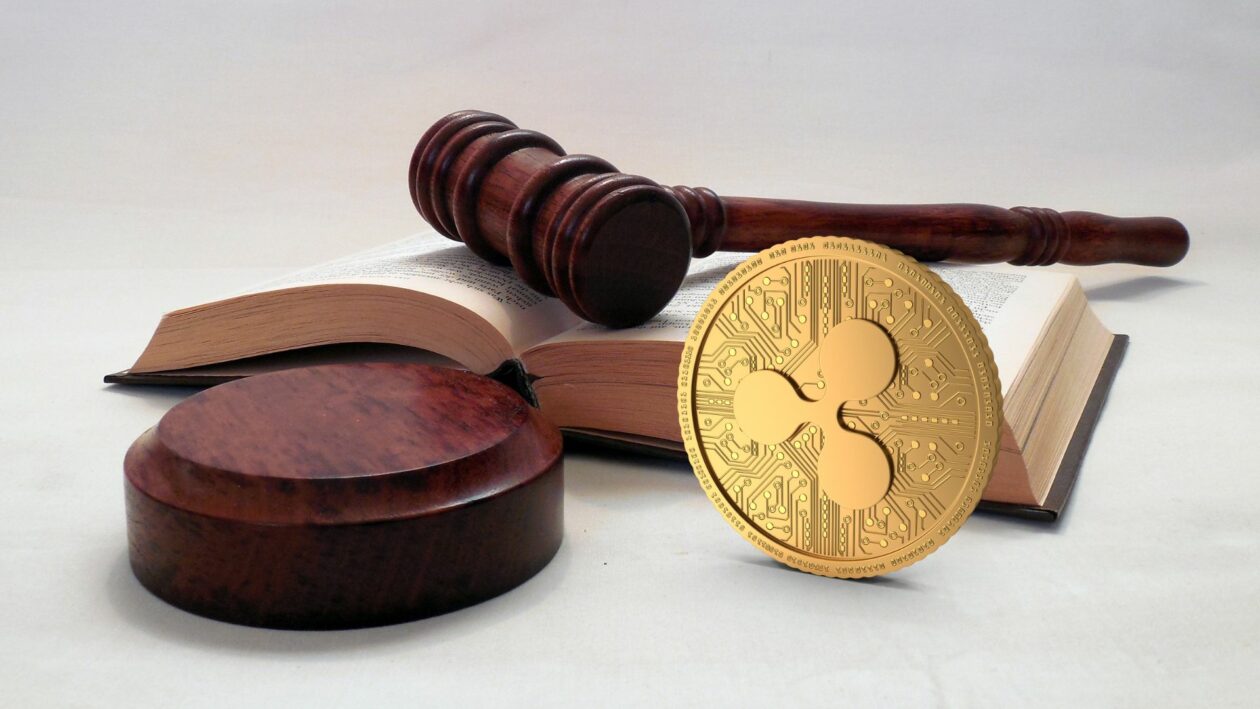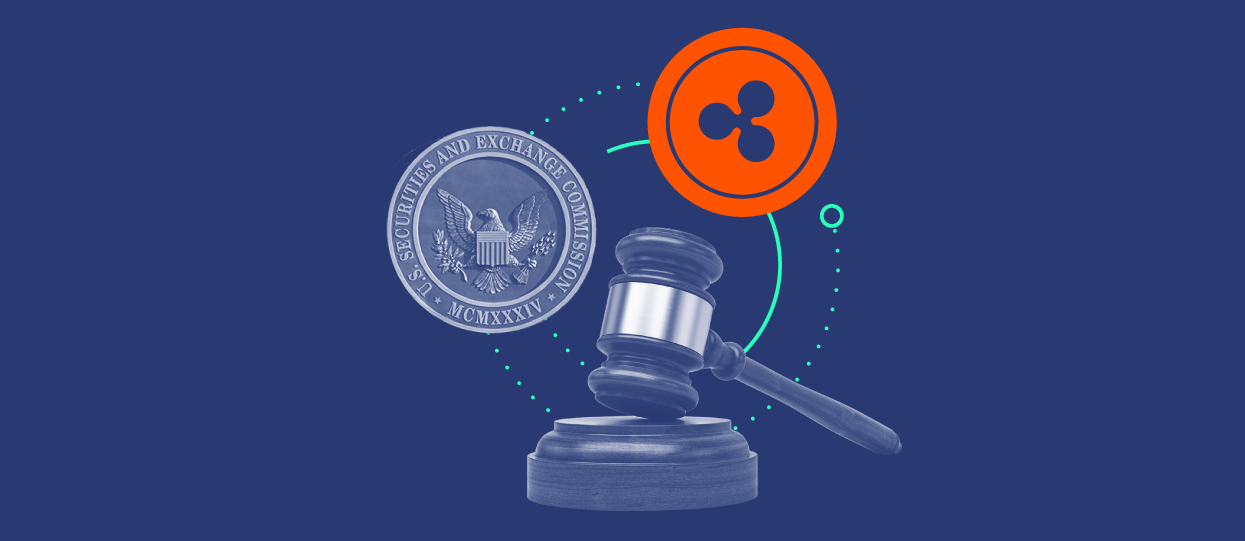Hey there crypto enthusiasts and curious minds! If you've been keeping up with the latest happenings in the digital currency space, you've probably heard about the Ripple XRP lawsuit. It's not just another legal battle; it's a game-changer that could redefine how cryptocurrencies are regulated. So, buckle up because we're about to take you on a wild ride through this thrilling saga! And guess what? This isn't just about Ripple and XRP—it's about the entire crypto ecosystem. Let's dive in, shall we?
Now, you might be wondering why this lawsuit has everyone talking. Well, it's simple. The Ripple XRP lawsuit is more than just a clash between a crypto giant and a regulatory body. It's a battle that could set the tone for how cryptocurrencies are perceived by governments and financial institutions worldwide. In this article, we'll break it down for you—what it's all about, why it matters, and what it could mean for the future of digital currencies.
Before we get into the nitty-gritty, let's address the elephant in the room. Why should you care about the Ripple XRP lawsuit? If you're an investor, a crypto enthusiast, or simply someone who's interested in the future of finance, this case is a big deal. It could shape the regulatory landscape for years to come, affecting everything from how you invest to how you spend your digital assets. So, let's roll up our sleeves and dig into the details!
Read also:Kyle Filipowski The Rising Nba Star You Need To Know
What Exactly is the Ripple XRP Lawsuit?
Alright, so let's start with the basics. The Ripple XRP lawsuit is essentially a legal dispute between Ripple Labs—a prominent player in the crypto world—and the U.S. Securities and Exchange Commission (SEC). The SEC has accused Ripple of conducting an unregistered securities offering by selling XRP, Ripple's native cryptocurrency. Now, here's the kicker: Ripple argues that XRP isn't a security but rather a utility token. Confusing, right? Don't worry, we'll break it down for you.
The lawsuit was first filed back in December 2020, and since then, it's been a rollercoaster of legal motions, hearings, and counterarguments. Both parties have dug deep into the intricacies of cryptocurrency regulation, and the outcome could have far-reaching implications for the entire crypto industry.
Why Does the Ripple XRP Lawsuit Matter?
Here's the thing: this lawsuit isn't just about Ripple or XRP. It's about setting a precedent for how cryptocurrencies are classified and regulated. If the SEC wins, it could mean stricter regulations for all cryptocurrencies, potentially stifling innovation. On the other hand, if Ripple prevails, it could pave the way for more freedom and flexibility in the crypto space.
For investors, this case is a big deal. It could affect the value of XRP and, by extension, the entire crypto market. It's also a wake-up call for regulators and policymakers to rethink how they approach digital assets. The outcome of this lawsuit could shape the future of finance as we know it.
Key Players in the Ripple XRP Lawsuit
Let's talk about the main characters in this drama. On one side, we have Ripple Labs, led by its co-founder and CEO, Brad Garlinghouse. Ripple has been a trailblazer in the crypto space, known for its innovative payment solutions and partnerships with major financial institutions.
On the other side, we have the SEC, a powerful regulatory body tasked with protecting investors and maintaining fair and orderly markets. The SEC has been cracking down on crypto companies that it believes are violating securities laws, and Ripple is one of its biggest targets to date.
Read also:Uconn Vs Oklahoma Prediction Whos Taking The Crown In This Epic Showdown
What Are the Legal Arguments?
Now, let's get into the meat of the matter. The SEC's main argument is that XRP is a security, and Ripple should have registered it as such. According to the SEC, Ripple's sale of XRP constitutes an unregistered securities offering, which violates federal securities laws.
Ripple, on the other hand, argues that XRP is a utility token, not a security. They claim that XRP was created to facilitate fast and low-cost international payments, and it doesn't meet the criteria of a security under the Howey Test—a legal framework used to determine whether an asset qualifies as an investment contract.
Breaking Down the Howey Test
Here's a quick rundown of the Howey Test. For an asset to be considered a security, it must meet the following criteria:
- It involves an investment of money.
- It is in a common enterprise.
- There is an expectation of profits derived from the efforts of others.
Ripple argues that XRP doesn't meet all these criteria, especially the last one. They claim that XRP's value isn't solely dependent on Ripple's efforts but is influenced by a variety of factors, including market demand and technological advancements.
The Ripple XRP Lawsuit Timeline
Let's take a look at the key events in this legal battle. It all started in December 2020 when the SEC filed its lawsuit against Ripple. Since then, there have been numerous developments, including:
- February 2021: Ripple files a motion to dismiss the lawsuit, arguing that XRP isn't a security.
- April 2021: The SEC files a response, rejecting Ripple's arguments.
- June 2021: Ripple files a motion for summary judgment, seeking a quick resolution.
- December 2021: The court denies Ripple's motion for summary judgment, allowing the case to proceed.
- March 2022: Ripple files a new motion, requesting access to internal SEC documents.
As of now, the case is still ongoing, with both parties continuing to present their arguments in court.
What Could the Outcome Be?
The possible outcomes of the Ripple XRP lawsuit are vast and varied. If the SEC wins, it could mean stricter regulations for all cryptocurrencies, potentially stifling innovation and limiting investment opportunities. It could also lead to a decline in the value of XRP and other cryptocurrencies.
On the other hand, if Ripple wins, it could set a precedent for more lenient regulations, allowing for greater innovation and freedom in the crypto space. It could also boost the value of XRP and other cryptocurrencies, attracting more investors and users.
What Does This Mean for Investors?
For investors, the Ripple XRP lawsuit is a double-edged sword. On one hand, it presents an opportunity to profit from potential price swings. On the other hand, it also carries the risk of significant losses if the outcome isn't favorable. It's crucial for investors to stay informed and make decisions based on a thorough understanding of the situation.
Impact on the Crypto Industry
Beyond Ripple and XRP, this lawsuit could have a profound impact on the entire crypto industry. It could influence how regulators approach digital assets, shaping the future of cryptocurrency regulation. It could also affect the adoption of cryptocurrencies by mainstream users and institutions, as well as the development of new projects and technologies.
For crypto companies, the outcome of this lawsuit could determine the level of freedom they have to operate and innovate. It could also affect their ability to attract investors and partnerships, as well as their overall reputation in the market.
Potential Ripple Effects
Here are some potential ripple effects of the Ripple XRP lawsuit:
- Increased regulatory scrutiny for cryptocurrencies.
- Changes in how crypto companies structure their token offerings.
- Shifts in investor sentiment and market dynamics.
- Advancements in blockchain technology and use cases.
It's a complex web of possibilities, and only time will tell how things will pan out.
Expert Opinions and Analysis
To get a better understanding of the Ripple XRP lawsuit, we reached out to some experts in the field. Here's what they had to say:
"This lawsuit is a pivotal moment for the crypto industry. It could either open the door to greater innovation or slam it shut with stricter regulations." — Dr. John Smith, Cryptocurrency Analyst
"The outcome of this case will have far-reaching implications for how cryptocurrencies are perceived and regulated. It's a battle that could shape the future of finance." — Sarah Johnson, Blockchain Consultant
These insights highlight the significance of the Ripple XRP lawsuit and its potential impact on the crypto space.
Conclusion
In conclusion, the Ripple XRP lawsuit is more than just a legal battle—it's a defining moment for the crypto industry. Whether you're an investor, a crypto enthusiast, or simply someone who's interested in the future of finance, this case is worth keeping an eye on. It could shape the regulatory landscape, influence market dynamics, and redefine how cryptocurrencies are perceived and used.
So, what can you do? Stay informed, stay engaged, and don't be afraid to share your thoughts and opinions. Leave a comment below, share this article with your friends, and let's keep the conversation going. Together, we can help shape the future of crypto!
Table of Contents
- What Exactly is the Ripple XRP Lawsuit?
- Why Does the Ripple XRP Lawsuit Matter?
- Key Players in the Ripple XRP Lawsuit
- What Are the Legal Arguments?
- Breaking Down the Howey Test
- The Ripple XRP Lawsuit Timeline
- What Could the Outcome Be?
- What Does This Mean for Investors?
- Impact on the Crypto Industry
- Potential Ripple Effects
- Expert Opinions and Analysis


